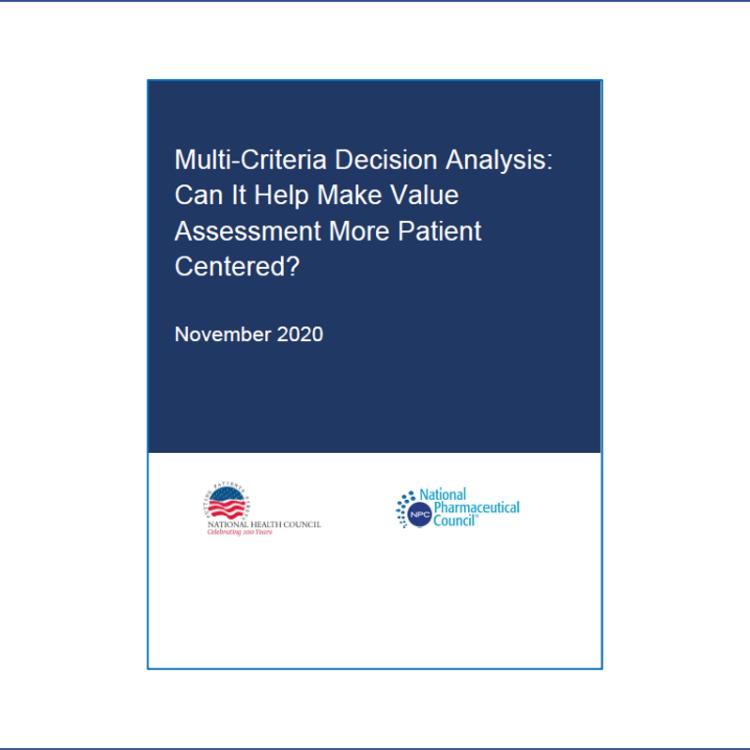By Elisabeth Oehrlein, and Eleanor Perfetto, National Health Council, and Kimberly Westrich, National Pharmaceutical Council
The National Health Council and National Pharmaceutical Council today released a white paper outlining an approach to value assessment that may more holistically address patients’ concerns, experiences and treatment preferences as compared to traditional approaches. Known as multi-criteria decision analysis (MCDA), this approach offers a unique way to quantify what matters most to patients when they consider the value of a health service, such as a drug or surgery and its impact on their life and quality of life. Earlier this year, our groups hosted a multi-stakeholder Roundtable on MCDA; the white paper is a product of that effort.
It is broadly recognized that traditional approaches to value assessment insufficiently account for the multidimensionality of patient experiences. MCDA is one method that has received recent interest from the research community as a complement or alternative to traditional approaches. MCDA is a structured approach to explicitly account for a multitude of criteria when an individual or group is making a decision. In other words, it’s a systematic way to consider the factors that patients and other stakeholders care about when they consider the value of a health service.
How is an MCDA conducted? As a first step, the criteria or “things” (e.g., burden on caregivers or side effects) that factor into a value decision are selected. It is vital that patients contribute to the identification and selection of criteria to ensure what matters to patients is prominent. Once criteria are selected, researchers identify evidence corresponding to how alternative health services compares with regards to the selected criteria. Next, criteria can be weighed, qualitatively or quantitatively, to determine how health services compare to one another. The process could include an in-person group discussion or surveys. The main purpose is to deliberately consider all of the criteria going into a decision and carefully weigh all factors based on their importance to the participants.
MCDA, like other value assessment methods in the United States, is still in its infancy. MCDA has the potential to promote more holistic, patient-centered value assessment, but only if patients are actively engaged in identifying the criteria and the deliberations. Ensuring patient-centricity in MCDA will require collaboration between patient organizations, researchers, and other health care decision-makers.
The white paper offers suggested ways those involved in value assessment can consider techniques to best bring the patient voice more fully into the process. By not incorporating the full value and benefits of the patient's input, assessments will fall short of their goal to meaningfully assess value. The Roundtable discussion and the resulting report are important steps in ensuring the patient voice is integrated into future value assessments leveraging MCDA.

